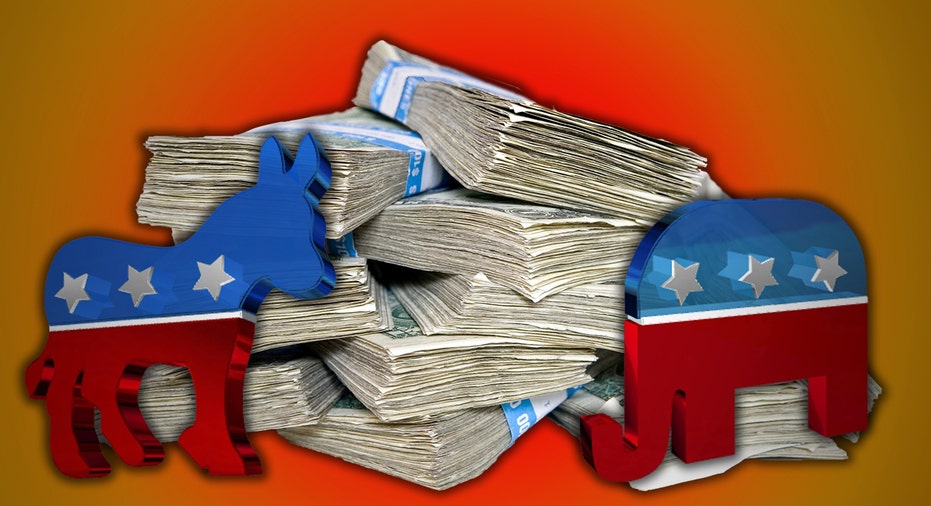What Happens to Big Money Donations After a Candidate Leaves the Race?

One by one, presidential hopefuls are dropping out of the race with recent departures from New Jersey Governor Chris Christie and businesswoman Carly Fiorina.
The 2016 presidential campaign cycle has been bringing in big dollar donations for contenders.
The Federal Election Commission (FEC) regulates and keeps track of campaign spending, according to its latest report in December 2015, Hillary Clinton had reached the $38 million mark, Bernie Sanders has $33 million, Ben Carson $22 million, Ted Cruz $20 million, Marco Rubio $14 million, Donald Trump $13 million, Jeb Bush $7 million and John Kasich $3 million.
With contributions growing, what happens to all that money once a candidate throws in the towel?
Kenneth A. Gross, a former associate general counsel of the Federal Election Commission, says there are several options on the table but it all depends on where the candidate stands.
“First order of business is to retire their debt by paying the full amount. If a candidate doesn’t have sufficient funds to retire outstanding debt or disputed debt then they need to go to the Federal Election Commission to request a debt settlement resolution,” said Gross.
This allows a candidate in some circumstances to pay off their debt for less than the amount they actually owe. Gross says the outstanding debt could be cut in half by paying approximately 50 cents on every dollar.
Candidates may also continue to raise funds to repay their debt after they “suspend” their campaigns or “drop out” of the race. Gross says there is no difference between the two terms it’s more about saving face.
“I can’t detect any legal significance it’s really a political statement, maybe some candidates think they have a better shot at raising money if they suspend their campaign instead of saying they quit,” said Gross.
According to the FEC, if a candidate does have money left over in their campaign war chest they can contribute the dollars to a charity, return the money to contributors, hold on to it for a future election, or donate it to their designated party.
In the 2004 presidential race, Senator John Kerry and incumbent President George W. Bush gave their leftover primary funds to the Democratic National Committee and the Republican National Committee. However, there are some things candidates are prohibited from doing with their extra campaign cash flow including pocketing it for personal use or transferring all of it to an existing campaign.
“If you decide to give it to other campaigns you have to give within the applicable limits you can’t just say I love Jeb Bush or Donald Trump here is my money. If you give as part of a principal campaign committee you can only contribute $1,000 but if you convert the committee into a political action committee (PAC) you may be able to give $5,000 depending on how you make the conversion but you can’t just turn all your money over to a campaign,” said Gross.
If a candidate wants a guarantee on their investment, the biggest blunder they can make is personally financing their campaigns.
“If you contribute your own money to a campaign you can’t get it out, it is gone. If you try to take it back it’s a crime, it’s considered a conversion to personal use. If candidates are properly advised, they do not contribute to their own campaigns they loan it so it becomes schedule C debt if it is done properly,” said Gross.
For example, Gross says if there is a loan agreement between Gov. Chris Christie and his campaign committee, than the campaign can pay him back with or without interest and its perfectly legal. In June 2008, after Hillary Clinton suspended her presidential campaign, at the time her campaign was $22.5 million in debt, $12.2 million of which was a loan from the candidate herself.
The Federal Election Campaign Act Amendments of 1979 first prohibited federal candidates from converting excess campaign funds to personal use. However, this initial prohibition did not include Senators or Representatives serving in the United States Congress. In 1989, the passage of the Ethics Reform Act made it illegal for federal lawmakers to pocket campaign dollars after bowing out of a race or upon retirement.



















